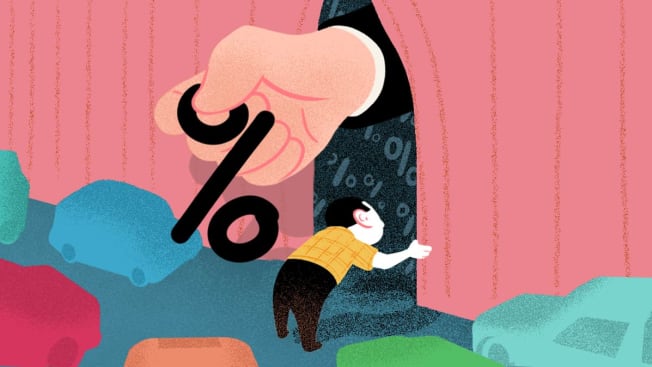What a Consumer-Friendly Future for Auto Lending Might Look Like
Here are four changes that could make it easier for you to find a good deal on a car loan

An investigation by Consumer Reports into auto lending raises serious questions about how the system is often unfair to consumers.
For one thing, we found that some consumers who are very similar in terms of their income, credit score, and even the type of car they’re buying can be offered loans with wildly divergent terms.
We examined nearly 858,000 car loans and found that the problem doesn’t affect just those with poor credit scores. Some people with excellent credit—the ones you’d think would get the best terms—are offered exorbitantly expensive loans, CR found.
Experts have no shortage of ideas for ways to make the system more equitable. Here are four key policy changes that could be made at the state or federal level, and could change how you finance your vehicle.
The loan selected by the dealer is not necessarily the loan that is best for the consumer.
acting auto finance program manager at the Consumer Financial Protection Bureau
1. You'll Be Able to Easily Compare Car Loans
Most people let the dealership handle the loan paperwork rather than going directly to a bank or credit union. Dealers typically shop around at various lenders to fund the loan, perhaps as many as nine, according to a 2020 study published by the National Bureau of Economic Research.
2. You'll Be Warned When Offered a ‘High-Cost’ Loan
That’s a federal protection provided to people shopping for home mortgages but not to those seeking auto loans. Home buyers offered a mortgage with an annual percentage rate that’s 6.5 percentage points higher than the average rate for people with good credit must be alerted that their loan is considered “high cost.” Presented with that info, they may choose to shop around for a better loan.
A similar model could work for car loans, Ayres says. It could “help protect car buyers if dealerships had to warn them when they were likely paying too much for their loan.” And it could be especially helpful to low-income borrowers buying used cars, who are more likely to get stuck with high-interest loans, according to research from the CFPB.
3. You'll Have a Chance to 'Cool Off' Before Accepting a Loan
A three-day waiting period between when a car dealer offers a loan and a borrower accepts it could help in several ways, according to an article by Adam Levitin, a Georgetown University law professor.
For one thing, it might help borrowers avoid discretionary add-ons, such as vehicle service contracts or supplemental gap insurance, which dealers often try to load into loans. And it might motivate borrowers to shop around for loans through a bank or credit union.
Stop Overcharging for Car Loans!
Sign CR’s petition to the Consumer Financial Protection Bureau to ensure that auto loans are fairly priced.
4. More Data on Car Loans Will Be Available
Under federal law, mortgage lenders must release certain information about the loans they make, including the race and income (but not the names) of their borrowers. That helps researchers and the public better understand problems such as redlining and discrimination in the housing market.
Auto lenders are under no such obligation. “That makes it far harder to understand—and fix—the inequities we know exist in the car lending world,” Bell says.
















